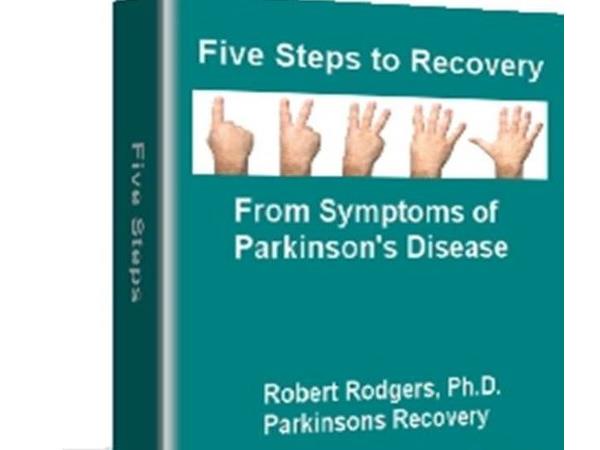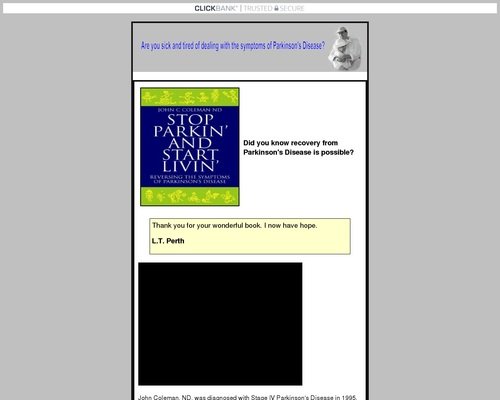Illustrative Case Of Parkinsonism
A 73-year-old man with a 15-year history of Parkinsons disease was admitted for neurosurgical evacuation of traumatic subdural haematoma. His parkinsonism had deteriorated in the last 3 months despite high daily levodopa dosage . During the postoperative period, his bradykinesia and rigidity markedly worsened. There was no clear improvement despite increasing the levodopa in combination with dopamine agonists in several presentations . He became confused, febrile and diaphoretic. On examination, he had marked generalised rigidity and bradykinesia. CT scan of head was normal. Other factors that may aggravate parkinsonism, such as addition of dopaminergic blockers, and concurrent medical conditions, were ruled out. Blood tests showed high muscle enzyme levels and markers of acute renal failure. Response to dopaminergic therapy remained minimal. He later developed shortness of breath and tachycardia. Pulmonary embolism was diagnosed and he was admitted to the intensive care unit. Levodopa was administered via a nasogastric tube and intense physiotherapy implemented with gradual improvement of his health status although daily functioning was still significantly impaired despite continuous dopaminergic therapy.
-
Learning points: Risk and contributor factors to develop parkinsonism-hyperpyrexia syndrome; benefit of nasogastric levodopa administration in cases with an inappropriate oral intake; the relevance of paying attention to systemic complications.
Parkinsons Disease Is A Progressive Disorder
Parkinsons Disease is a slowly progressive neurodegenerative disorder that primarily affects movement and, in some cases, cognition. Individuals with PD may have a slightly shorter life span compared to healthy individuals of the same age group. According to the Michael J. Fox Foundation for Parkinsons Research, patients usually begin developing Parkinsons symptoms around age 60. Many people with PD live between 10 and 20 years after being diagnosed. However, a patients age and general health status factor into the accuracy of this estimate.
While there is no cure for Parkinsons disease, many patients are only mildly affected and need no treatment for several years after their initial diagnosis. However, PD is both chronic, meaning it persists over a long period of time, and progressive, meaning its symptoms grow worse over time. This progression occurs more quickly in some people than in others.
Pharmaceutical and surgical interventions can help manage some of the symptoms, like bradykinesia , rigidity or tremor , but not much can be done to slow the overall progression of the disease. Over time, shaking, which affects most PD patients, may begin to interfere with daily activities and ones quality of life.
Apomorphine Subcutaneous Injections And Infusion
Apomorphine is an alternative therapy for patients with disabling motor and non-motor fluctuations poorly controlled with conventional treatment. It is a potent dopamine agonist with a short-acting effect that makes it effective in complicated situations such as off dystonia episodes or unpredictable disabling off. Subcutaneous injections are used as a rescue therapy when a rapid on is needed. The effect is quick and lasts 4590min. Patients needing more than three to six injections per day are best treated with a continuous infusion therapy.
Overall, studies report improvement of off time of 50%80%. Its effect on dyskinesias is more controversial. Reductions may occur after a few weeks or months of continuous therapy and mostly if large reduction in levodopa dose can be achieved.
Both apomorphine subcutaneous injections and infusion are safe in terms of procedure but can cause adverse events related to the drug itself. These include nausea, hypotension, excessive somnolence and neuropsychiatric problems, such as confusional state, impulse control disorder and dopamine dysregulation syndrome. Subcutaneous nodules develop in 37% of cases treated with infusions; although these are usually not severe and can be managed with non-pharmacological measures, the treatment may need to be stopped.
You May Like: Essential Oils Parkinsons
What Is Parkinsons Disease
Parkinsons disease is a nervous system disease that affects your ability to control movement. The disease usually starts out slowly and worsens over time. If you have Parkinsons disease, you may shake, have muscle stiffness, and have trouble walking and maintaining your balance and coordination. As the disease worsens, you may have trouble talking, sleeping, have mental and memory problems, experience behavioral changes and have other symptoms.
Who Recovers From Parkinsons Disease

Permit me now to apply the same ideas about cancer to Parkinsons. Didnt you gointo fear just like everyone else when you were told you had Parkinsons disease?I say : Forget about it.
Drain the entire experience of being told you have this;disease town the toilet.;I predict you will be much happier.
Let the doctors and researchers agonize over a diagnosis. Let them worry which treatments to recommend for Parkinsons Disease. That happens to be the work that they have chosen. Acknowledge that it is the job;of;medical doctors and researchers to sort through these issues. You are not being paid a handsome salary to think these thoughts. They are.
Centering your moment to moment thoughts on a diagnosis of Parkinsons that your doctor has declared need not dominate or ruin your life. Any diagnosis yours included is simply the opinion of one;person anyway. ;There is no definitive way to diagnose Parkinsons disease. My research shows there is a very good chance you do not havewhat is labeled as classic Parkinsons disease. You have something else. Why getdepressed over a disease state you may have never have had anyway?
Summary
Robert Rodgers, Ph.D.
| 35% |
Also Check: Does Parkinson’s Affect Memory
How Is Parkinsons Disease Treated
There is no cure for Parkinsons disease. However, medications and other treatments can help relieve some of your symptoms. Exercise can help your Parkinsons symptoms significantly. In addition, physical therapy, occupational therapy and speech-language therapy can help with walking and balance problems, eating and swallowing challenges and speech problems. Surgery is an option for some patients.
What Doctors Expect Longer
While other patients struggle to do the same, clinicians such as Gilbert stress there is good reason to believe that such lingering effects of COVID-19 will ultimately be surmountable with time. We don’t think that the medical illness necessarily alters the course of PD, or makes more neurons die, so we typically expect people to return to their baseline, she says. Knowing that is important, as it gives people encouragement that the illness did not set their PD on a different course, even though it may seem that way in the short term. In the meantime, doctors recommend staying connected with peer support groups and exercise classes virtually, as much as is possible, to help with recovery.
Though recovery may take longer than patients would like, Tanner says there is cause for optimism: This is a really resilient community. People are strong and they’re fighters.
Cheryl Platzman Weinstock is a contributing writer who covers health and science research and its impact on society. Her;work;has;appeared in the;New York Times, NPR;and;Kaiser Health News.
You are leaving AARP.org and going to the website of our trusted provider. The providers terms, conditions and policies apply. Please return to AARP.org to learn more about other benefits.
Your email address is now confirmed.
You’ll start receiving the latest news, benefits, events, and programs related to AARP’s mission to empower people to choose how they live as they age.
Also Check: Can Anxiety Cause Parkinson’s Symptoms
Q: Can The Stress Of The Covid
A: Stress can definitely increase PD symptoms. I have discussed the relationship between;stress, anxiety and PD in general before, and COVID-19 has certainly created a very stressful environment for everyone. There can be stress related to contracting the virus as well as the anxiety and concern about returning to pre-pandemic activities now that life is starting to return to normal. The stress is being felt much more acutely by older adults and those with chronic medical issues, members of the population who have an increased risk of complications from COVID-19 infection. Many people with PD experience anxiety as a non-motor feature of their PD, and many are reporting that anxiety has increased since the pandemic began. To help minimize stress and normalize the current situation, be sure to establish daily routines, continue to exercise , and stay connected with family and friends in person if youre ready, or online or on the phone. Be patient with yourself and with others.
What Is The Outlook For Persons With Parkinsons Disease
Although there is no cure or absolute evidence of ways to prevent Parkinsons disease, scientists are working hard to learn more about the disease and find innovative ways to better manage it, prevent it from progressing and ultimately curing it.
Currently, you and your healthcare teams efforts are focused on medical management of your symptoms along with general health and lifestyle improvement recommendations . By identifying individual symptoms and adjusting the course of action based on changes in symptoms, most people with Parkinsons disease can live fulfilling lives.
The future is hopeful. Some of the research underway includes:
- Using stem cells to produce new neurons, which would produce dopamine.
- Producing a dopamine-producing enzyme that is delivered to a gene in the brain that controls movement.
- Using a naturally occurring human protein glial cell-line derived neurotrophic factor, GDNF to protect dopamine-releasing nerve cells.
Many other investigations are underway too. Much has been learned, much progress has been made and additional discoveries are likely to come.
Read Also: Does Parkinson’s Affect Blood Sugar
Give Yourself Time To Adjust
Over time, youll likely become an expert in Parkinsons disease but right now, youre a newbie. Give yourself time for the diagnosis and all it might mean to sink in. Then, get educated: Ask your doctor for information you can take home and read, find other people with Parkinsons in your community or online to talk to, and browse sites like the National Parkinson Foundation and the Michael J. Fox Foundation for Parkinson’s Research.
How Can Parkinson’s Affect Someone At The Advanced Or Palliative Stage
Parkinsons progresses in stages: diagnosis, maintenance, advanced and palliative. Professionals should have talk to people with Parkinsons about advance care planning in the earlier stages of the disease. This can allow them to express their wishes and preferences for their care in the later stages of the disease and make plans for the future.
Although the condition progresses differently and at a different speed for each person, the advanced stage can potentially cover a long period of time.
Problems that affect someone with advanced Parkinsons may include:
- medicines being less effective at managing symptoms than before
- having to take lots of medicines to manage symptoms and side effects
- more off periods when the effects of medication are reduced, and people experience movement fluctuations and involuntary movements
- increased mobility problems and falls
- swallowing difficulties
- less control of their Parkinsons symptoms, which become less predictable
- pain.
Some of the more advanced symptoms can lead to increased disability and poor health, which can make someone more vulnerable to infection, such as pneumonia. People with Parkinsons most often die because of an infection or another condition, usually caused by Parkinsons.
Recommended Reading: How To Deal With Parkinson’s Delusions
Other Concerns To Be Aware Of
There are a few other possible concerns to be aware of when having surgery. Again, not everyone will experience these issues, but it is wise to understand them and be aware so that you can plan accordingly and be prepared.
- The effect of even mild dehydration may be exacerbated in PD.
- People with PD may have swallow dysfunction. This can be exacerbated by anesthesia and make people with PD at higher risk for aspiration, defined as the tendency for food or liquid to get into the airway. Therefore, it is best to introduce soft foods slowly after surgery.
- People with PD may have significant fluctuations of blood pressure which can be magnified in the post-operative period. Episodes of low blood pressure can cause dizziness and even fainting. This problem is most prominent when changing head position that is moving from lying down, to sitting to standing. Therefore, these changes should be made very slowly.
- Urinary dysfunction is common in PD, and people with PD may be particularly prone to urinary tract infections . It is important to note that UTIs or any infection may first manifest as an unexplained worsening of PD symptoms or initiation of hallucinations.
- People with PD are particularly prone to constipation and this can be exacerbated in the post-operative period. Taking a daily medication to prevent constipation may become necessary after surgery.
Tips and takeaways
Do you have a question or issue that you would like Dr. Gilbert to explore? Suggest a Topic
What Are The Different Forms Of Parkinsonism

There are three main forms of parkinsonism, as well as other related conditions.
Most people with parkinsonism have idiopathic Parkinsons disease, also known as Parkinsons. Idiopathic means the cause is unknown.
The most common symptoms of idiopathic Parkinsons are tremor, rigidity and slowness of movement.
Vascular parkinsonism affects people with restricted blood supply to the brain.;Sometimes people who have had a mild stroke may develop this form of parkinsonism.
Common symptoms include problems with memory, sleep, mood and movement.
Some drugs can cause parkinsonism.
Neuroleptic drugs , which block the action of the chemical dopamine in the brain, are thought to be the biggest cause of drug-induced parkinsonism.
The symptoms of drug-induced parkinsonism tend to stay the same only in rare cases do they progress in the way that Parkinsons symptoms do.
Drug-induced parkinsonism only affects a small number of people, and most will recover within months and often within days or weeks of stopping the drug thats causing it.
Don’t Miss: What Are The Most Common Symptoms Of Parkinson’s Disease
Giant Leap For Recovery Course Details
This online course is offered on a spectacular course platform that presents information for each class in the form of videos, audios, text descriptions and downloads. Everything you need for each class is found in the same place. I have set up enrollment with a free 7 day trial so you can see how the course platform functions. Your credit card is not charged until the 7 day trial ends. Enrollment can always be before the trial period concludes.
Steps are rolled out every five days. The design invites you to explore and implement recommendations for each of the 14 steps. You can embrace each of the steps yourself. None of them require assistance medical professional or the purchase therapies.
Now while you can access the course materials any time of the day or night you are also invited to always contact me with any follow-up questions or issues that have arisen. I am here to support your journey down the road to recovery. My intention is to offer all the support you need to establish a successful journey down the road to recovery.
Videos, audios, downloads and explanations of the steps are included with each class.
What are the 14 Steps?
I am not going to tell you, nor explain them in advance. Really you say? Really.
Tuition
Once enrolled, you will have instant access to the course content which kicks off with Step One.
Robert Rodgers PhD
Learn to balance your nervous system when you attend this complimentary, online event!
Illustrative Case Of Acute Psychosis
An 80-year-old woman with Parkinsons disease was brought by her caregiver to the hospital emergency room because of marked agitation and paranoid ideation. She had physically attacked a staff member at the nursing home where she had been recently placed. One year earlier she developed visual hallucinations, initially well controlled with quetiapine . In the last 6 months she had developed frequent delusions with loss of insight. On admission to the Neurology ward she was taking 300mg per day of levodopa and quetiapine . Her cognitive state was normal. Other medical conditions known to cause acute psychosis were ruled out. Several treatment changes were tried. First, levodopa dose was halved without any significant motor worsening or improvement in hallucinations or delusions. In consequence, quetiapine was switched to clozapine , prompting improvement in psychiatric symptoms. In the end, levodopa was raised back to 300mg a day and clozapine was maintained. A few months later she had developed cognitive decline and rivastigmine was added.
-
Learning points: Psychosis exacerbation after nursing home placement; loss of insight and delusions as severity markers; before adding antipsychotic therapy for psychosis consider dopaminergic drug reduction, especially in advanced disease stages; after acute episode resolution check cognitive status.
Don’t Miss: How Does Smoking Lower The Risk Of Parkinson Disease
What New Treatments Are Being Developed
Thanks to the progress we’ve already made, new treatments are being tested in clinical trials that have the potential to slow, stop or even reverse Parkinson’s.
These include:
- stem cell therapies, which aim to use healthy, living cells to replace or repair the damage in the brains of people with Parkinson’s;
- gene therapies, which use the power of genetics to reprogramme cells and change their behaviour to help them stay healthy and work better for longer
- growth factors , which are naturally occurring molecules that support the growth, development and survival of brain cells.
And we’re developing treatments that aim to improve life with the condition, including new drugs that can reduce dyskinesia.
What You Can Expect
Parkinson does follow a broad pattern. While it moves at different paces for different people, changes tend to come on slowly. Symptoms usually get worse over time, and new ones probably will pop up along the way.
Parkinsonâs doesnât always affect how long you live. But it can change your quality of life in a major way. After about 10 years, most people will have at least one major issue, like dementia or a physical disability.
Read Also: How Do People Get Parkinson’s Disease

